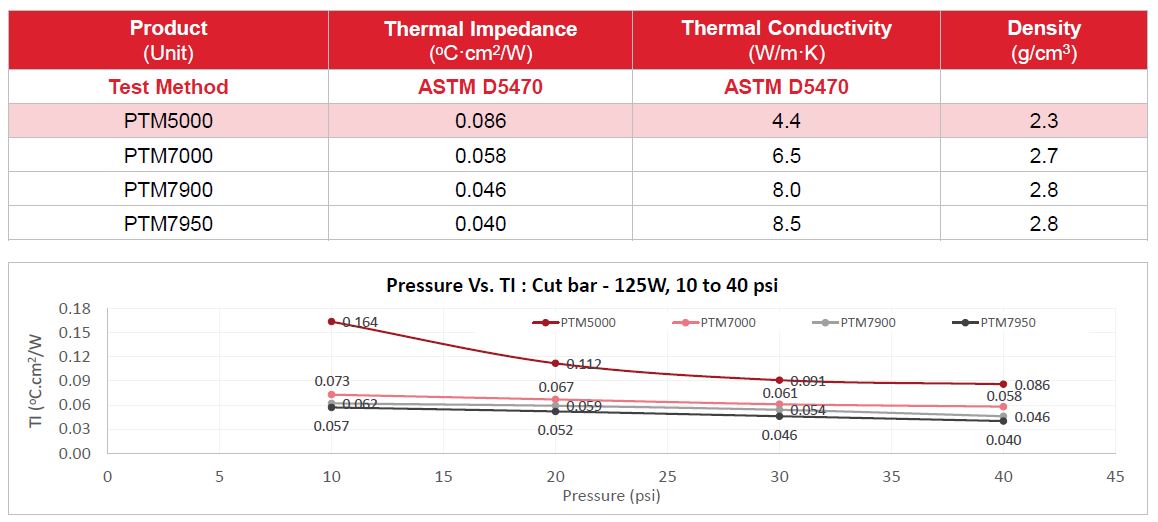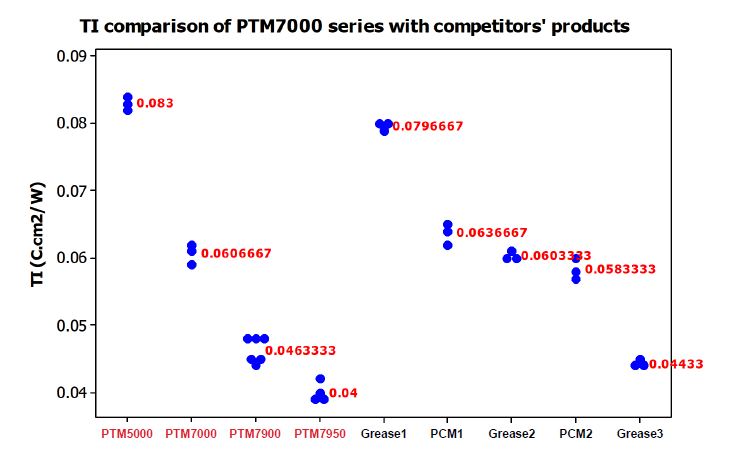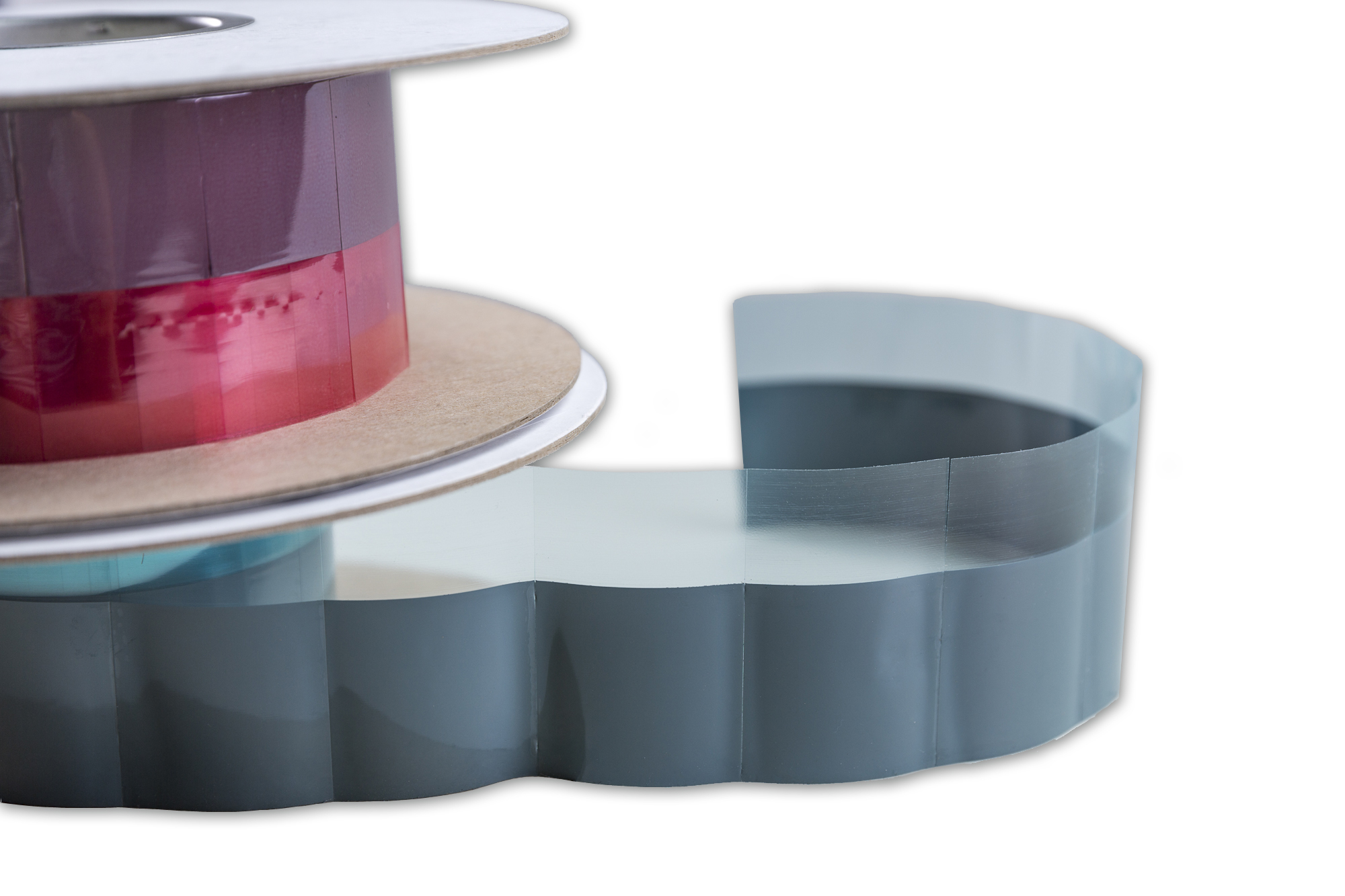PTM 7000 | Phase Change Pad
- 0.06 Thermal Impedance
- 6.5 Thermal Conductivity
- Pad form
Product Description
PTM7000 is designed to minimize thermal resistance at interfaces and maintain extremely stable performance through reliability testing required for long product life applications. As with all Phase change materials, it has stable Thermal Impedance across accelerated aging tests and does not display bleed, pump or flow out. PTM7XXX product line has the highest Thermal conductivity and lowest thermal impedance out of the entire PTM Series.
PTM7000 has a Thermal conductivity of 6.5 (W/m·K) depending on the bondline thickness and is based on a robust polymer PCM structure that exhibits excellent wetting properties during typical operating temperature ranges, resulting in very low surface contact resistance. Typical temperature range is -40°C to 125°C. This proprietary material provides superior reliability and maintains low thermal impedance (0.06) , making it desirable for high-performance integrated circuit devices. Regarding breakdown voltage, phase change materials are typically aroun 5000V/mm but this is highly thickness depend. Naturally an initial "unphased" 0.2mm pad will have different BV than the final 30/40um bondline.
Please keep in mind that 7XXX is a Product Series. Base 7000 performs on the baseline of the stated properties while PTM7900 and PTM7950 are the highest performing materials of this product line reaching 8.5 W/m·K and 0.04 TI.
Technical Specifications
| General Properties | |
| Specific Gravity Specific Gravity Specific gravity (SG) is the ratio of the density of a substance to the density of a reference substance; equivalently, it is the ratio of the mass of a substance to the mass of a reference substance for the same given volume. For liquids, the reference substance is almost always water (1), while for gases, it is air (1.18) at room temperature. Specific gravity is unitless. | 2.7 |
| Thickness range | 0.20 - 1.00 mm |
| Electrical Properties | |
| Volume Resistivity Volume Resistivity Volume resistivity, also called volume resistance, bulk resistance or bulk resistivity is a thickness dependent measurement of the resistivity of a material perpendicular to the plane of the surface. | 2.1x1014 Ohms⋅cm |
| Thermal Properties | |
| Thermal Conductivity Thermal Conductivity Thermal conductivity describes the ability of a material to conduct heat. It is required by power packages in order to dissipate heat and maintain stable electrical performance. Thermal conductivity units are [W/(m K)] in the SI system and [Btu/(hr ft °F)] in the Imperial system. | 6.5 W/m.K |
| Thermal Impedance | 0.06 °C·cm²/W |
Additional Information
What are the reliability expectations of the PTM 7XXX products?
All the 7XXXseries (7000, 7900 & 7950) pass the three major reliability tests with flying colours. Honeywell does not test beyond 1000 cycles, 92 hrs HAST and 1000 hrs HTS. However, anecdotally, some automotive customers have taken 7900 to beyond Honeywell’s limits and have found it to pass shock and vibration, longer temperature cycling and longer temperature and humidity soak.


PTM7XXX Series - Pressure vs Thermal Impedance

PTM7XXX Series vs Competition comparison



